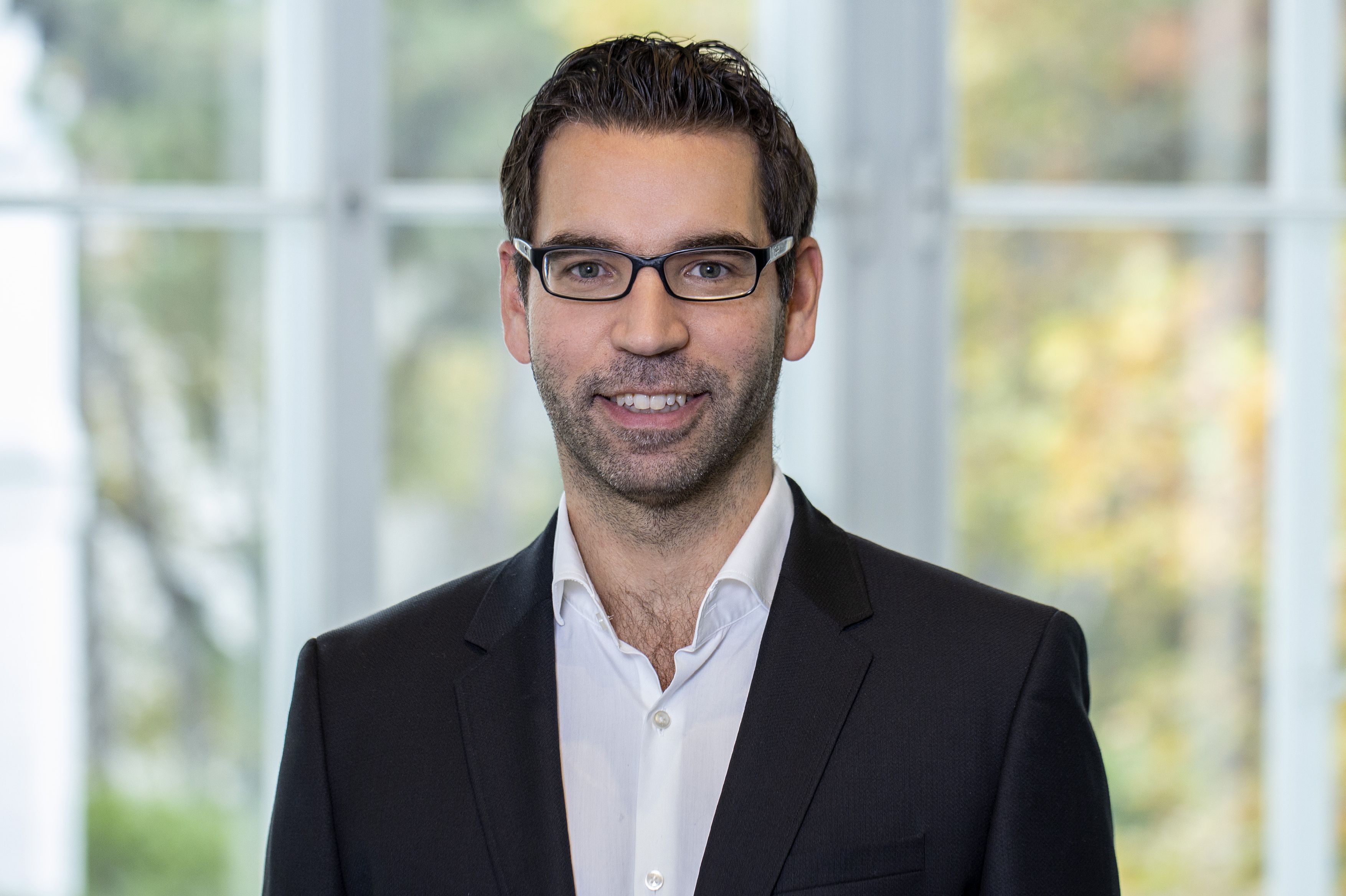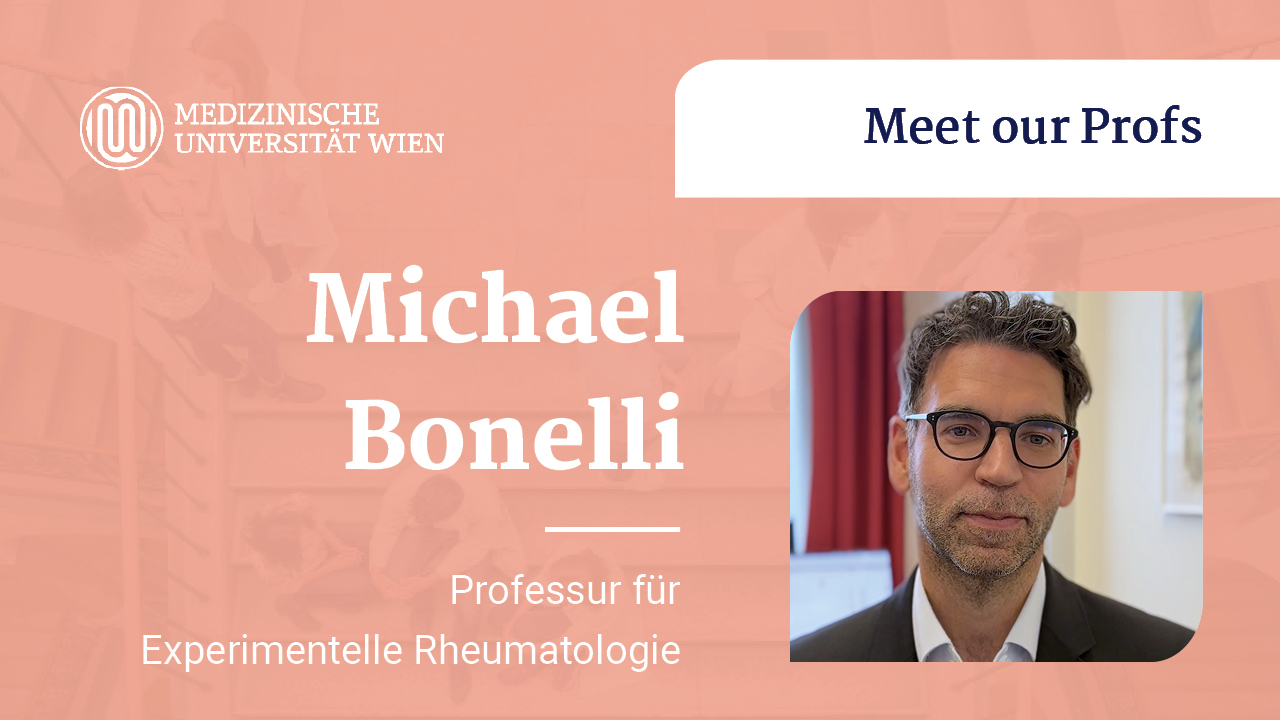
(Vienna, 1 September 2025) Michael Bonelli, Deputy Head of the Clinical Department of Rheumatology at MedUni Vienna, took up a professorship in Experimental Rheumatology (§99-1) at the beginning of August. He is conducting research into innovative immunotherapies in order to advance the translation of basic research into clinical practice.
Experimental rheumatology forms a central interface between basic research and clinical care for patients with autoimmune diseases and chronic inflammatory diseases. The close integration of preclinical and clinical research aims to improve understanding of the molecular and cellular mechanisms of these diseases with the goal of developing new diagnostic procedures and innovative therapies.
Michael Bonelli is Deputy Head of the Clinical Division of Rheumatology at the Department of Medicine III at MedUni Vienna and Head of the Clinical and Translational Science Unit. His goal is to transfer findings from basic research into clinical practice in order to improve the classification of patients, enable early diagnosis and develop new therapeutic strategies.
"In the future, experimental rheumatology will play an even more important key role," explains Michael Bonelli, "it enables the personalised stratification of patients, opens up new avenues for targeted immunomodulation and accelerates the translation of research results into clinical practice."
A particular focus is on cellular therapies, which have primarily been used in oncology to date. These include CAR-T cell therapies, which target the immune system against pathogenic cells, as well as approaches using regulatory T cells, which can control excessive immune responses in the long term. "These innovative immunotherapies open up the prospect of not only controlling autoimmune diseases, but also treating them curatively for the first time. Experimental rheumatology is thus on the threshold of a paradigm shift that will fundamentally change the treatment of rheumatic diseases," says Bonelli.
Michael Bonelli is a specialist in internal medicine and rheumatology. He completed a research fellowship at the National Institutes of Health (NIH) in John O'Shea's laboratory, where he investigated the role of epigenetic modifications in cell stability under inflammatory conditions. After returning to the Medical University of Vienna, he founded a working group at the Department of Rheumatology. As part of the Special Research Area (SFB)-HIT-70, his team is investigating epigenetic changes in patients with autoimmune diseases with the aim of reprogramming them using new epigenetic drugs.
He is also Principal Investigator at the Ludwig Boltzmann Institute for Arthritis and Rehabilitation, where he researches the role of structurally relevant cells in the immune system, with a particular focus on cell-cell interactions as drivers of inflammatory joint diseases. The aim of his work is to develop new therapies for treatment-refractory patients and thus play a decisive role in shaping the future of rheumatological care.
Michael Bonelli is involved in numerous national and international research networks. For example, the interdisciplinary Horizon Europe project "DarkMatter" is investigating the role of microbial peptides in the development of autoimmune diseases such as rheumatoid arthritis and systemic lupus erythematosus. As part of the Horizon Europe project "SQUEEZE", an international consortium is working to make the treatment of patients with rheumatoid arthritis more efficient, safer and more personalised. At the same time, new approaches are being developed to stratify patients more precisely and identify biomarkers for existing therapies. The Innovative Health Initiative (IHI) project "AutoPiX", on the other hand, focuses on the use of artificial intelligence to develop novel imaging-based biomarkers to improve diagnosis and therapeutic monitoring in rheumatology.

After activation, data will be sent to YouTube. Further information here: Data protection